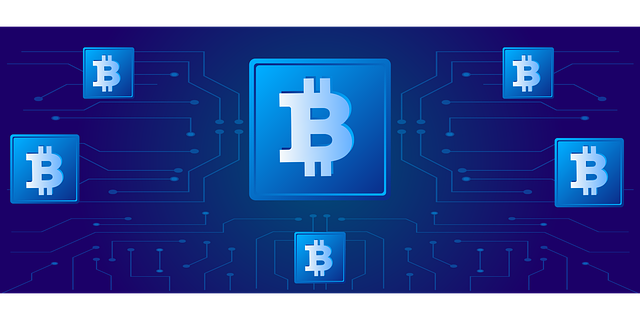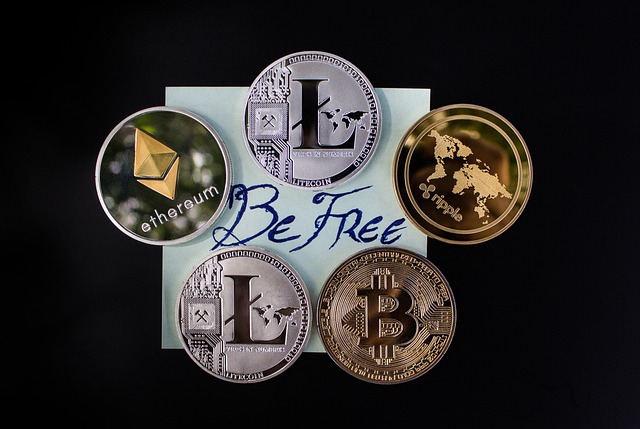Blockchain technology, driven by top DeFi platforms like Ethereum, Binance Smart Chain, Polkadot, and Cardano, is revolutionizing global supply chain management. It offers unprecedented transparency, security, and efficiency through real-time tracking, smart contracts, and direct communication between participants, eliminating intermediaries and reducing costs. Proven case studies show successful implementations in food distribution and retail, positioning DeFi platforms as game-changers, fostering trust, streamlining operations, and enabling data-driven decision-making.
“Discover how blockchain-based supply chain management is transforming global logistics. This comprehensive guide explores the potential of this revolutionary technology, from enhancing transparency and traceability to improving efficiency and reducing costs. We delve into the top DeFi platforms that streamline processes, showcasing successful implementations across various industries. Understand how decentralized networks are reshaping the landscape, ensuring secure, efficient, and transparent operations.”
- Understanding Blockchain Technology and Its Potential in Supply Chain Management
- Top DeFi Platforms and Their Role in Streamlining Supply Chain Processes
- Enhancing Transparency and Traceability with Blockchain-based Systems
- Improving Efficiency and Reducing Costs through Decentralized Networks
- Case Studies: Successful Implementation of Blockchain in Global Supply Chains
Understanding Blockchain Technology and Its Potential in Supply Chain Management

Blockchain technology has emerged as a revolutionary force, transforming various industries and offering unprecedented levels of transparency, security, and efficiency. At its core, blockchain is a distributed ledger system that records transactions across multiple nodes in a secure and immutable manner. Each block in the chain contains a set of data, cryptographically linked to the previous block, creating an unalterable record. This technology has gained significant attention from top DeFi platforms and supply chain management experts due to its potential to reshape traditional logistics.
In the context of supply chain management, blockchain can provide end-to-end visibility, ensuring that every step of the process is tracked and recorded. From manufacturing to delivery, this technology allows for real-time updates, enabling stakeholders to monitor product movement and authenticity. By eliminating intermediaries and fostering trust among participants, blockchain has the power to streamline operations, reduce costs, and enhance overall supply chain resilience. Its potential applications are vast, promising to disrupt traditional practices and drive significant improvements in efficiency across industries.
Top DeFi Platforms and Their Role in Streamlining Supply Chain Processes

In today’s digital era, blockchain technology is transforming supply chain management, and decentralized finance (DeFi) platforms play a pivotal role in this revolution. Top DeFi platforms offer innovative solutions that streamline processes across various industries, enhancing transparency, efficiency, and security. By leveraging smart contracts, these platforms enable automated and transparent tracking of goods, facilitating real-time updates and ensuring accountability throughout the supply chain.
Among the top DeFi platforms, Ethereum stands out with its robust ecosystem of applications and developers. Other notable mentions include Binance Smart Chain, Polkadot, and Cardano, each contributing unique features like faster transaction times, lower fees, and enhanced scalability. These platforms not only simplify interactions between participants but also foster trust through immutability, reducing the need for intermediaries and fostering a more inclusive and efficient supply chain network.
Enhancing Transparency and Traceability with Blockchain-based Systems

Blockchain-based systems are transforming supply chain management by significantly enhancing transparency and traceability. This technology creates an immutable record of every transaction, allowing stakeholders to track products from their origin to their final destination in real-time. Unlike traditional systems where information is siloed and often unverifiable, blockchain ensures data integrity and visibility across the entire value chain.
One notable advantage is the elimination of intermediaries, reducing costs and increasing speed. Top DeFi platforms are leveraging this potential by integrating blockchain into their operations, ensuring a secure, transparent, and efficient supply chain management process. This shift not only strengthens trust among participants but also facilitates better decision-making based on accurate, up-to-date data.
Improving Efficiency and Reducing Costs through Decentralized Networks

Blockchain technology offers a promising solution to optimize supply chain processes, and one of its key advantages is its potential to improve efficiency and reduce costs through decentralized networks. By eliminating intermediaries, blockchain creates a direct communication channel between participants in the supply chain. This decentralized approach streamlines operations, enhances transparency, and reduces administrative overhead, which can be significant in traditional supply chain management.
Furthermore, top DeFi platforms (Decentralized Finance) built on blockchain infrastructure enable secure and efficient peer-to-peer transactions. Smart contracts automate various processes, ensuring that payment is made only when goods are delivered as agreed. This minimizes the risk of fraud and delays, fostering a more reliable and cost-effective supply chain ecosystem. The transparency and immutability of blockchain records also help in dispute resolution, further reducing potential costs associated with traditional supply chain management practices.
Case Studies: Successful Implementation of Blockchain in Global Supply Chains

The successful integration of blockchain technology into global supply chains is evident through various case studies, showcasing its transformative potential. One notable example involves a leading food distribution company that utilized blockchain to trace the origin of products, ensuring product authenticity and safety. By implementing a decentralized system, they achieved end-to-end transparency, allowing for real-time updates on inventory levels, shipping status, and even the farms where ingredients originated. This enhanced traceability not only improved efficiency but also boosted consumer trust.
Another successful story comes from the retail sector, where major brands collaborated with blockchain startups to streamline their supply networks. By leveraging smart contracts and distributed ledger technology, these companies optimized order management, reduced fraud, and improved logistics coordination among various stakeholders. This collaboration has led to significant cost savings and faster delivery times, making it a game-changer for both top DeFi platforms and traditional businesses aiming to revolutionize their supply chain operations.
Blockchain-based supply chain management is revolutionizing global logistics, enhancing transparency, and streamlining processes. The integration of blockchain technology, coupled with decentralized finance (DeFi) platforms, offers significant advantages in terms of efficiency, cost reduction, and improved traceability. As demonstrated through various case studies, the successful adoption of blockchain across industries highlights its potential to transform traditional supply chain dynamics. Furthermore, leveraging top DeFi platforms enables seamless digital transactions, fostering a more connected and efficient global trade ecosystem.
